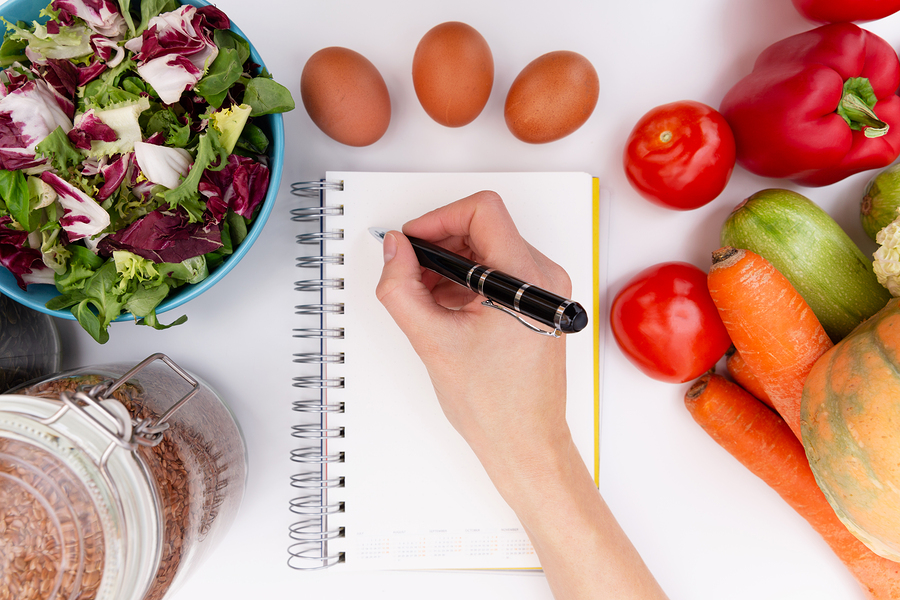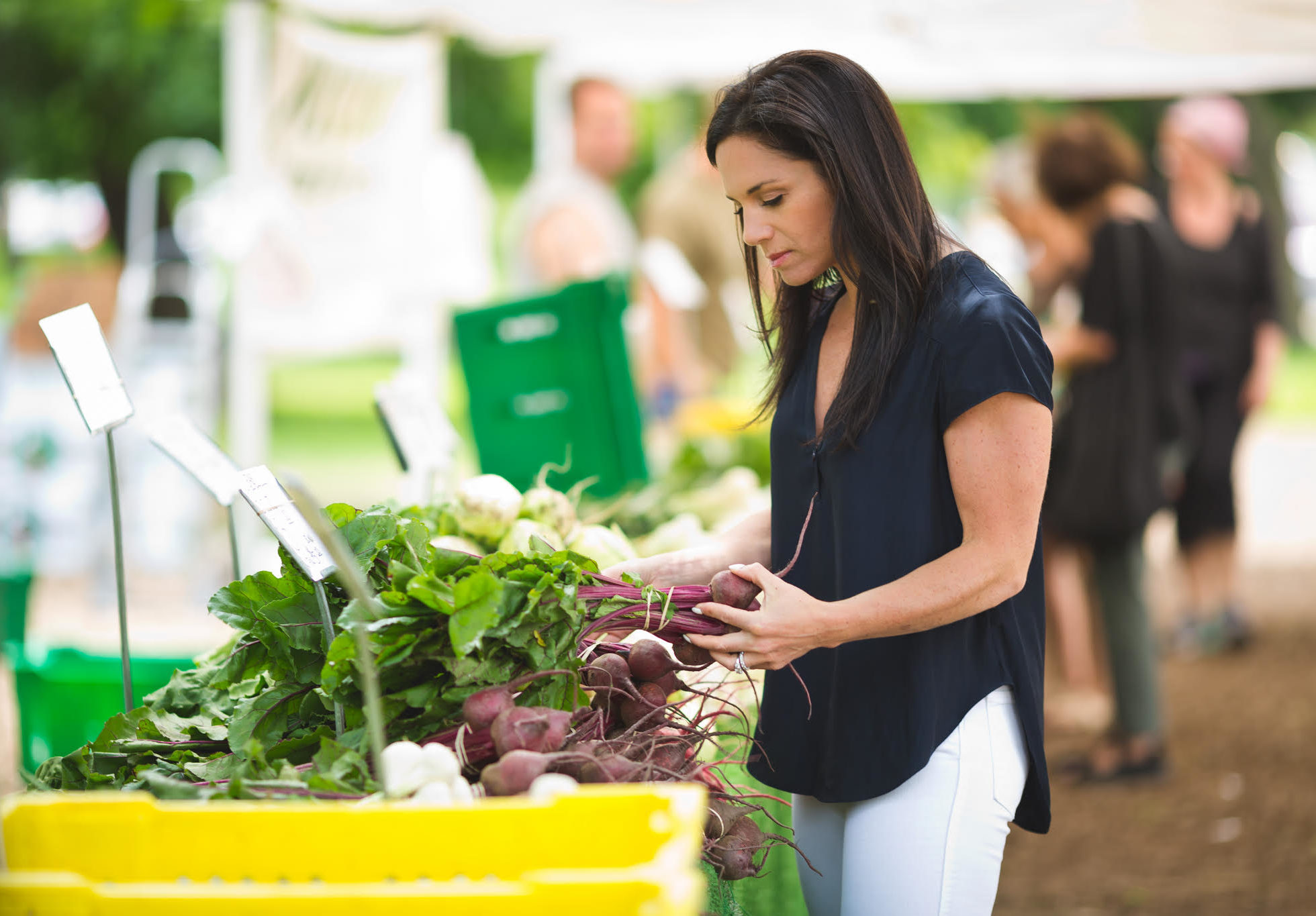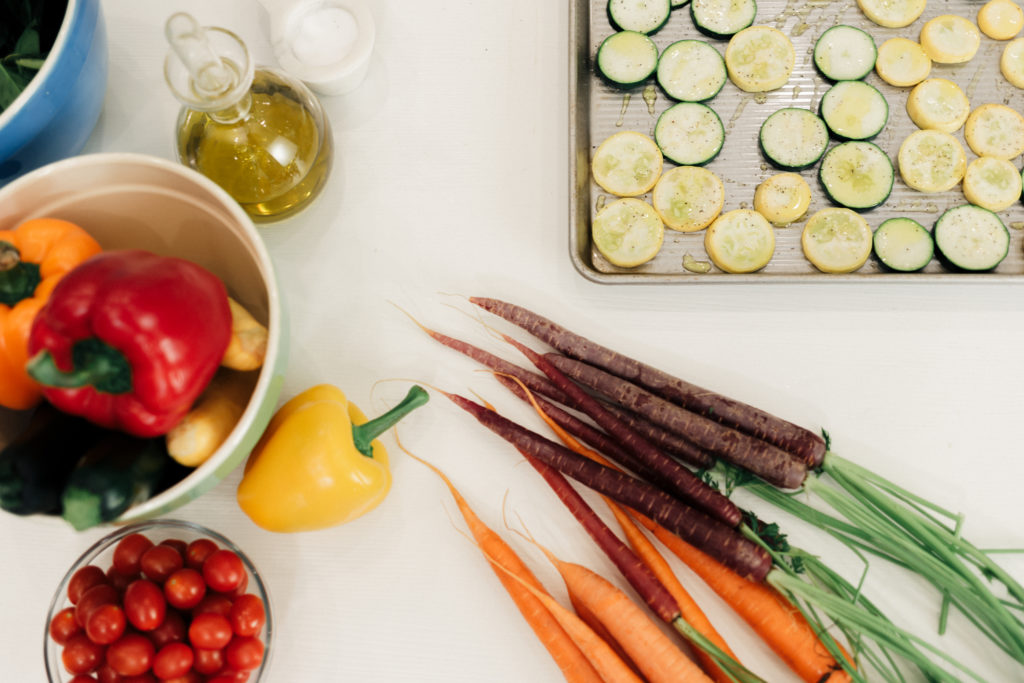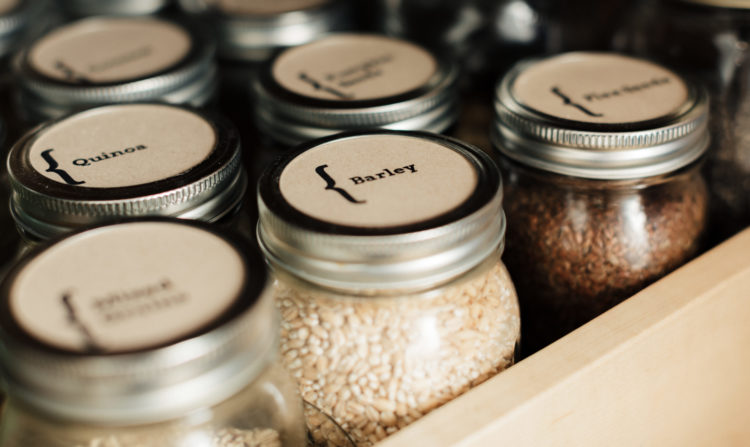Five Ways to Choose Foods that are Good for You and the Environment

It’s Earth Day! A day to celebrate our planet and make sure we are caring for it appropriately. It’s an opportunity to look at our daily impact and make more sustainable choices including eating the best foods for you and our planet! Here are five ways you can choose foods that are good for you AND the environment:
Shop Locally
Buying local produce and other food products not only supports your local economy, but is also a more healthful and environmentally conscious option. Research shows that locally grown produce retains more nutrients than those transported from far away because it is picked at peak ripeness and avoids degradation due to changes in temperature during storage and transportation. Additionally, “food miles” (the distance food travels from where it is grown or produced to the store we buy it from) contribute to greenhouse gas emissions. So, buying food that is grown and produced locally reduces food miles and decreases the impact on the environment!
You can shop local products at a farmers market and talk to your butcher or fishmonger about sourcing while you are at the grocery store.

Grow your Own Herbs
Growing your own food is a hyper local way to source food, and herbs are a great place to start! You can control the growing conditions, eat produce at its peak and take only what you need for one recipe, which also cuts down on food waste. Herbs like thyme, rosemary, mint, and basil can be grown indoors year round with just the light of a sunny window. They taking up a minimal amount of space, too, which make them perfect for all of our city-dwelling clients.
After you’ve got your own herb garden growing, check out this Lentil Salad recipe that uses fresh herbs.

Choose In-Season Produce
Fresh fruits and vegetables, eaten in their whole form, are great sources of nutrition. Choosing seasonal produce will always provide the biggest bang for your buck because they contain the most vitamin and mineral content at the lowest price. Eating produce grown in the same season also reduces the food miles and energy necessary for it to reach your plate. According to the Seasonal Food Guide, seasonal produce grown in Illinois in early May includes:
- Arugula
- Asparagus
- Beets
- Cabbage
- Chard
- Cherries
- Cilantro
- Collard Greens
- Leeks
- Lettuce
- Mushrooms
- Onions
- Parsnips
- Peas
- Radishes
- Rhubarb
- Spinach
- Strawberries
Explore our recipe archives to find more ways to incorporate these fresh fruits and veggies in your diet. And, if you’re wondering what to do when nothing is in-season in your area? We’ve got you covered with our guide on freeze-dried, frozen and canned produce.
Eat More Plants

Consuming more plant-based foods including vegetables, fruits, whole grains, lentils, and beans is not only good for our health, but it is good for the environment too. Plant-based foods contain fiber, which we know lowers cholesterol, stabilizes blood sugar, and contributes to digestive regularity. Also, compared to animal products, they don’t require as much land or energy use. While it’s not necessary to completely eliminate animal products from your diet, replacing a few and increasing your intake of plant foods can help reduce risk of disease.
Buy from Bulk Bins

More and more grocery stores are carrying bins and barrels full of dry goods including nuts and seeds, whole grains, beans and legumes, and so much more. Bulk bins allow consumers to bring in their own containers to fill with the exact quantity of the dry good they want. Using a reusable container reduces the need for additional packaging and waste. Additionally, buying from bulk bins allows you to get as much of or as little as you need of a product to help prevent food waste. Bulk food bins typically offer a broader selection of foods than their pre-packaged counterparts helping to diversify nutrients, too!
Check out bulk buys that the FEED dietitians recommend for stocking your pantry!
Research for this post was provided by dietetic intern and RD-to-be, Shannon Jones.